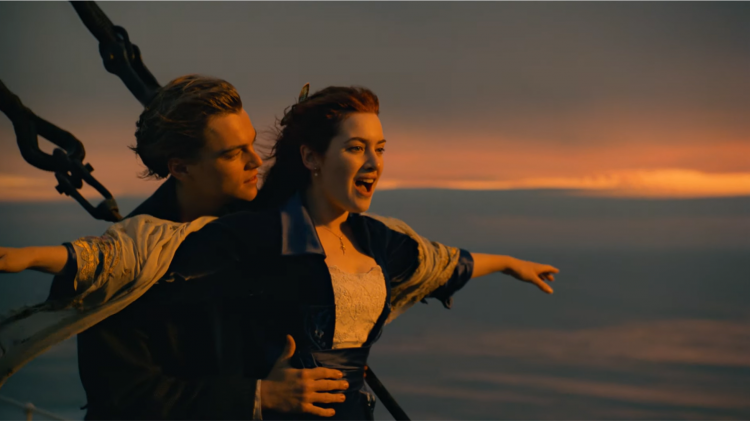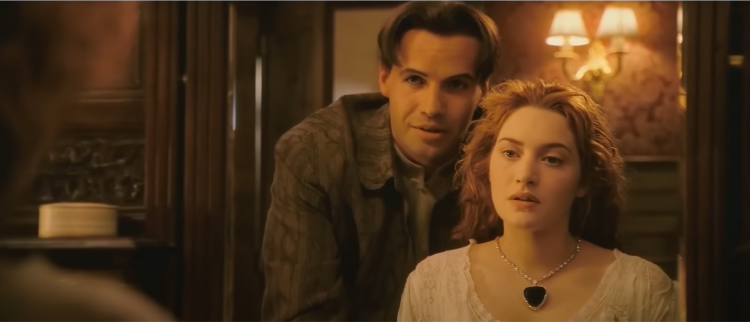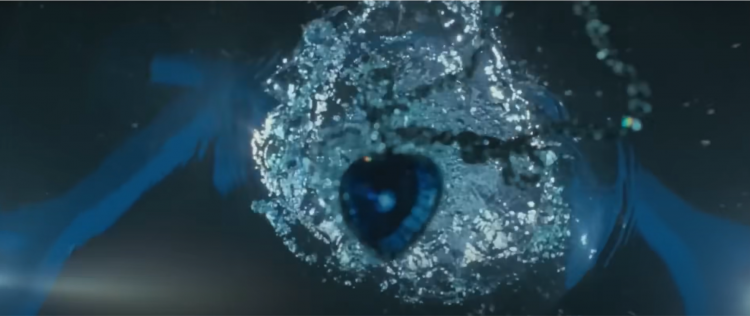
credit: Titanic (1997)
Titanic is one of the most recognizable movies to ever be produced. Particularly, this fame is brought on by one of its soundtrack songs, My Heart Will Go On, which is still being used as a popular melancholic, sad romantic type song.
This article will review the 25-year-old movie to analyze its great and weak points. We’ll look over what made the movie stand out and also over the flaws that made the movie not as great as expected.

credit: Titanic (1997)
Love may conquer all, but wealth may conquer love
The movie did not directly show the events of the RMS Titanic, the ship by which the movie was inspired. Rather, it told its story in the form of a narration by one of the survivors (acting only, not the real person) of the tragedy.
The 1997 film followed the story of Rose, who was in the upper-middle class level of society. She was set to marry Cal, a rich man from a very wealthy family. Rose’s mother told Rose that her marriage with Cal meant kissing goodbye to their current and future financial problems.
This statement duly showed the power of money in the context of a relationship. Some were forced to marry someone who they didn’t love or wouldn’t receive love from, with hopes that their lives would improve after marrying someone wealthy. As a result, the essence of marriage — to live together in love — was lost, as it was used by some to live together in wealth instead. However, this idea resonated louder and louder in the movie.
Enter Jack, someone who just got lucky to be able to get his hands on a ticket to Titanic. He was a poor (keyword: poor) artist who happened to meet Rose. Eventually, they realized they had feelings for each other, and it was Jack whom Rose intended to keep for life instead. This intention, of course, was met with staunch objection from her mother.
This scene showed how classism would find its way into romance. The rejection from Rose’s mother was, without a doubt, propelled by Jack’s economic status. The undesire to enter a long-lasting relationship with someone from a lower financial level was a strong manifestation of the power of money in dictating love.

credit: Titanic (1997)
Wealth may conquer love, but love conquers all
Jack and Rose then made love and fell in love with each other. They even did this in secret, trying to avoid Cal in a car on the ship’s ferry.
When the ship began to sink, and most passengers were in the process of being evacuated, Rose, who was already in a lifeboat, leaped back to the sinking ship, trying to save her sweetheart. She eventually managed to take him out of the room where he was stranded.
While I may agree with some of the viewers (and even some of those aboard the same lifeboat) that Rose was unreasonable for putting herself out of safety for a stranger she just met, I think there is still validation in the end. She managed to save a life from danger. If Jack wasn’t in danger and just waiting for a lifeboat in the docks, then there wasn’t any reason for her to jump out of safety. The risky stupidity Rose did have at least a bit of justification.
Now that Jack was in a safe position, Cal and Jack agreed to have Rose take the next lifeboat under the false promise of Cal that he and Jack would find another one. However, Rose couldn’t stand the feeling of abandoning Jack, so she leaped back to the deck (again).
A few more struggles between the two men came, and after a few moments, Cal decided to flee in a lifeboat, lying that he was a father of a lost child.
Jack and Rose found each other again. Long story short, Jack lost his life. Rose was rescued by some marine rescuers and was escorted to a ship on board New York.
Now, there was a symbolic moment in the ending. Rose, who was now an old woman, went into the docks of the ship she was now on and threw Cal’s necklace into the ocean. This was a beautiful symbol that love isn’t all about money. The necklace, which was a symbol of love in wealth, now rests at the bottom of the sea, far away from Rose’s body, symbolizing her liberation from this very idea.made
 Follow Us
Follow Us





